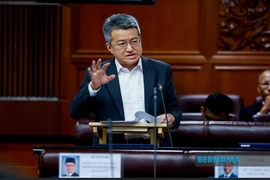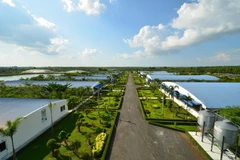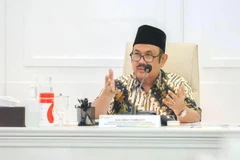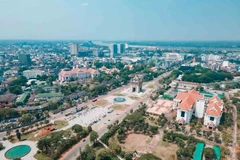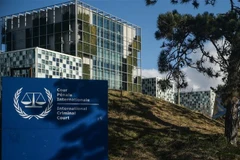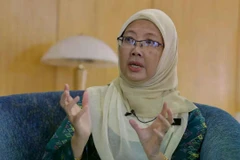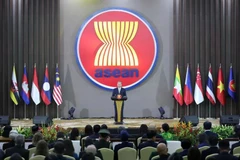Kuala Lumpur (VNA) - Malaysia needs to develop a local pool of cybersecurity experts to reduce reliance on foreign technology and workforce, said Datuk Dr. Amirudin Abdul Wahab, CEO of CyberSecurity Malaysia (CSM).
He highlighted that Prime Minister Anwar Ibrahim recently urged domestic experts to strengthen collaboration with the government to build a more robust cybersecurity ecosystem, ensuring the protection of Malaysia’s digital infrastructure.
The private sector is expected to play a role in this effort by developing new solutions aligned with both national and international cybersecurity policies and standards. To facilitate this, CSM has been promoting collaboration through the Cybersecurity Collaboration Programme (CCP), a shared platform that connects experts, industries, and academic institutions for information exchange.
Currently, the National Cyber Security Agency (NACSA) is the lead body responsible for formulating and implementing cybersecurity strategies and policies, while CSM, under the Ministry of Digital, provides technical cybersecurity services.
Amirudin noted that while cybersecurity incidents declined between 2023 and 2024, the severity of attacks has intensified due to more sophisticated methods such as artificial intelligence (AI) and deepfake technology. As data value rises and digital infrastructure becomes more complex, cyberattacks pose financial risks amounting to millions of dollars, damage reputation, disrupt businesses, and impact citizens' daily lives.
The decline in reported incidents is attributed to increased public and corporate awareness. The government has also strengthened public-private partnerships, international collaboration, and the enforcement of cybersecurity regulations, including the Cyber Security Act 2024, the Personal Data Protection Act 2024, the Data Sharing Act 2024, and the Online Safety Act 2024.
Dr. Mohd Izuan Hafez Ninggal, head of the Cybersecurity Research Group at Universiti Putra Malaysia (UPM), emphasized that cybersecurity is built on three pillars: people, processes, and technology. He cautioned that Malaysia’s cybersecurity ecosystem would remain incomplete if investments focus solely on technology while neglecting skilled professionals and public awareness. In October 2023, Minister of Communications Fahmi Fadzil revealed that Malaysia faces a shortage of 12,000 cybersecurity professionals across various sectors.
Online scams and data breaches have emerged as serious threats. Cybercriminals use psychological manipulation to deceive individuals into revealing sensitive information, while children are often targeted due to their lack of awareness. Experts suggest incorporating cybersecurity education into school curricula. Additionally, the government is considering regulations requiring online payments to be disbursed only upon buyer confirmation of receipt, including transactions on social media platforms and real estate dealings.
Beyond technical measures, Malaysia must focus on developing expertise and raising public awareness to establish a comprehensive and resilient cybersecurity ecosystem./.

Food to be exported to Malaysia must be certified
Food imported to Malaysia must be produced in facilities that follow food safety assurance programmes recognised by the Malaysian Ministry of Health.

